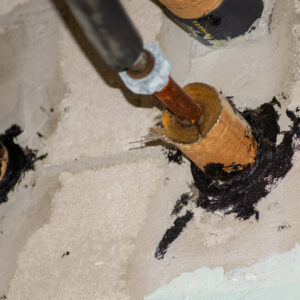
Mold Air Test
Ensure a healthier indoor environment with IET’s expert mold air testing. Our advanced testing methods detect airborne mold issues, immediately, helping you take the right steps for a safer home or workplace. Schedule your test today!

Asbestos Clearance Test
If asbestos has been identified and removed—through a process known as asbestos abatement or remediation—a clearance test is conducted to ensure no residual asbestos fibers remain in the air, confirming the space is safe for re-occupancy.

Asbestos Tests
If your home or building was constructed before 1979 and contains popcorn ceilings, textured finishes, or old insulation, testing is highly recommended—especially before starting renovations or demolition.ATP

Biological Load Testing
We offer biological load testing to identify the level of contamination in compromised environments. Our advanced equipment detects contaminants in real time, eliminating guesswork, providing scientific data to support insurance claims, protect occupant safety, and optimize restoration efforts.
Do you suspect VOCs?
VOC Sampling Determines:
- If it contains excessive levels of VOCs,
- The likely sources of excessive VOCs,
- If the health of building occupants may be at risk,
- If professional mitigation is necessary.
What are Volatile Organic Compounds, or VOCs?
Volatile organic compounds, or VOCs may be found in products such as gasoline, refrigerants, adhesives, and solvents. Many organic compounds are used during construction, but others may be used daily in cleaning fluids, cosmetics, and more. These include the solvents in paints, caulk, and adhesives, as well as the ingredients in hair sprays, carpet cleaners, floor polishes, and pesticides.
Symptoms & Effects of VOCs?
The health effects of high concentrations of VOCs vary from being highly toxic and carcinogenic to having no known effect. The impact of long-term exposure at the levels found in households, however, is less well understood. High levels of VOC concentration have been linked to respiratory conditions, asthma, and other illnesses. This is particularly a problem for children or people with compromised immune systems.
Some symptoms of short-term (acute) exposures to VOCs include increased risk of eye, nose and throat irritation, headaches, nausea / vomiting, dizziness and worsening of asthma symptoms. Symptoms of long-term exposures to VOC’s include increased risk of cancer, liver damage, kidney damage and central nervous system damage.

Always Free Phone Consultations

Call Now!
We’ll Call You!
Certified professionals – experts in environmental hazards – are ready to answer your environmental testing questions.
Instruments, Insights, and Innovation
We are dedicated to educating and empowering people when it comes to indoor air quality and environmental testing. Follow us for more.
